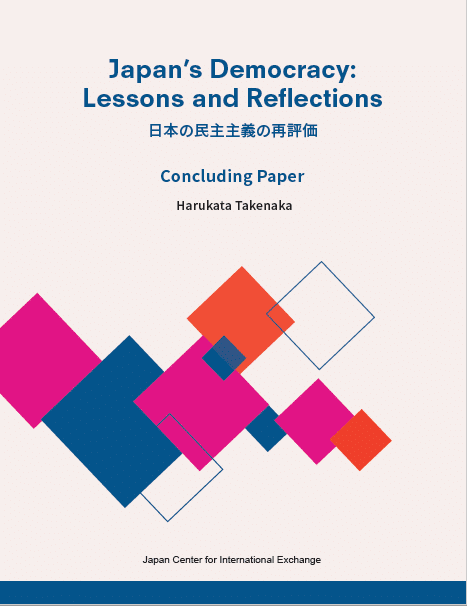This report serves as the concluding paper for “Japan’s Democracy: Lessons and Reflections,” a project conducted in 2021–2022 as part of JCIE’s Expanding Support for Democratic Governance program. The project provided a platform for Japanese scholars, political and opinion leaders, and the broader Japanese public to reflect on Japan’s own experience in building a democratic society post-WWII, examine the resilience of the elements that support democratic governance in Japan today, and identify possible ways to strengthen it further into the future. JCIE organized a series of three discussions to conduct this reassessment with Japanese scholars and policymakers in partnership with Dr. Harukata Takenaka, professor at National Graduate Institute for Policy Studies (GRIPS), who is a leading Japanese scholar on the study of democracy.
Authored by the project lead and based on the previous three discussions the concluding paper is organized into four discussion topics: 1) the overall state of democracy in Japan today, assessed through a framework of democratization theory; 2) reforms in the 1990s onwards and how they transformed Japan’s democracy; 3) key issues facing Japan’s democracy today including political awareness among constituents, the role of the media, and the gender gap; and 4) how Japan’s democracy could be further improved.
*To learn more about the project in Japanese please visit our Democracy for the Future Website.

